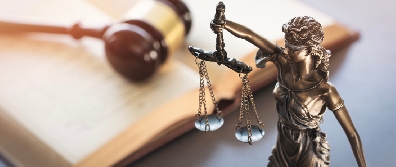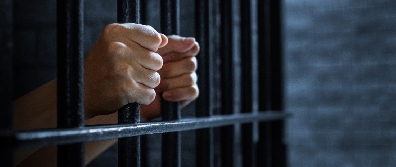Julian Assange is no Journalist. Does it Matter
Sweden has reopened the rape investigation against Julian Assange who was recently sentenced to 50 weeks in prison for skipping bail in England. The Wikileaks founder was removed from the Ecuadorian embassy on April 11, where he had been staying for 7 years while attempting to avoid extradition to both Sweden and the United States. It is his potential extradition to the United States that has free press advocates most concerned. Assange is accused of conspiring with Chelsea Manning to hack into a government computer which lead to the eventual release of classified military documents and videos related to the Iraq War. Assange and his defenders have claimed his indictment is a mere pretext to punish him for embarrassing the U.S. and worse is an attack on the first amendment’s protections for journalist.
Assange, however, is no journalist. The Mueller report does not paint Wikileaks in a favorable light. At best, a reading of the Mueller report shows Wikileaks as a biased actor selectively publishing material that furthers its own agenda. At worst, Wikileaks could be viewed as the unofficial mouthpiece of the Russian government. At the end of the day, whatever the truth may be, the first amendment’s protections broadly cover truthful information regardless of the speaker’s intentions.
Journalistic Integrity
The Society of Professional Journalists (SPJ) is the oldest journalistic organization in the United States and has defined the oft repeated baseline for journalistic standards. Below are the four principles of the foundation of ethical journalism as defined by the SPJ.
Seek Truth and Report It. This includes fact-checking, not intentionally distorting information, identifying sources, avoiding stereotypes, and supporting the open exchange of opinions.
Minimize Harm. This includes demonstrating compassion for sources and subjects of stories and protecting the privacy of individuals. Interestingly, the code makes no prohibition to interfere with national security.
Act Independently. This includes avoiding conflicts of interest and corruption, and resisting the attempts of advertisers and special interests groups to influence the news.
Be Accountable. This includes correcting mistakes, inviting criticism, and exposing unethical practices of the media.
There is, however, no single standard for journalistic integrity by which everyone abides. While the SPJ has established a baseline many have modeled their own approach off of, every news organization defines and publishes for itself its own standards of ethics. There are still common threads between each code of ethics that all stem from the SPJ’s four principles and one thread in particular that Assange consistently ignores, that is a standard of independence and impartially. Here is a sampling of how different journalistic organizations handle impartiality.
· Al-Jazeera – “Present diverse points of view and opinions without bias or partiality.”
· SPJ - “Avoid conflicts of interest, real or perceived. Disclose unavoidable conflicts.”
· AP – “It means we avoid behavior or activities that create a conflict of interest and compromise our ability to report the news fairly and accurately, uninfluenced by any person or action.”
· Washington Post – “This newspaper is pledged to avoid conflict of interest or the appearance of conflict of interest, wherever and whenever possible.”
o “Connections with government are among the most objectionable.”
o “We avoid active involvement in any partisan causes – politics, community affairs, social action, demonstrations – that could compromise or seem to compromise our ability to report and edit fairly."
· NPR – “Our journalists conduct their work with honesty and respect, and they strive to be both independent and impartial in their efforts.”
o “To secure the public's trust, we must make it clear that our primary allegiance is to the public. Any personal or professional interests that conflict with that allegiance, whether in appearance or in reality, risk compromising our credibility.”
· New York Times – “… no one may do anything that damages The Times’s reputation for strict neutrality in reporting on politics and government; in particular, no one may wear campaign buttons or display any other form of political partisanship while on the job.”
Wikileaks and the Mueller Report
Wikileaks, for its part, has no published code of ethics. So, at a minimum, it did not breach its own code. But the recently released Mueller report does show striking examples of how Assange and his organization would have run afoul of the standards set by just about every other journalistic entity, especially when it comes to the question of impartiality.
The Mueller report shows that Assange and his followers seemed to have a clear agenda and bias. In 2016, the military intelligence service of the Russian military, known as GRU, hacked into the Democratic National Committee and the Democratic Congressional Campaign Committee and began distributing private emails and data through various organizations including Wikileaks. The Mueller Report cites Assange as writing to members and associates of Wikileaks in a twitter group chat dated November 19, 2015;
“[w]e believe it would be much better for GOP to win ... Dems+Media+liberals woudl [sic] then form a block to reign in their worst qualities. . . . With Hillary in charge, GOP will be pushing for her worst qualities. , dems+media+neoliberals will be mute . ... She's a bright , well connected, sadisitic sociopath ."
The Mueller report also cites incidences where WikiLeaks timed the release of information to maximize the impact against Hillary Clinton’s campaign in furtherance of their agenda.
Writing to Guccifer 2.0, a GRU persona on July 6, 2016; "if you have anything hillary related we want it in the next tweo [sic] days prefab le [sic] because the DNC is approaching and she will solidify bernie supporters behind her after… we think trump has only a 25% chance of winning against hillary…"
About a week later Guccifer 2.0 sent Wikileaks an encrypted file that contained hacked data from DNC computer networks, including 20,000 emails. Wikileaks released the emails and documents three days before the Democratic National Convention began on July 25, 2016.
Wikileaks not only continued to publish stolen emails procured by GRU but also actively attempted to use misdirection to conceal where the leaks were coming from. For instance, Assange publicly denied that Russia was the supplier of the hacked documents and made efforts to paint murdered DNC staffer, Seth Rich, as the source of the stolen DNC emails.
Assange even went as far as to offer a $20,000 reward for information leading to the arrest of Rich’s killer. This created an uproar among conspiracy theorists but there is no evidence Rich’s death was in any way related to his work at the DNC. Nonetheless, Assange claimed that the DNC hack was an inside job and claimed he had proof that Russia was not involved. Assange has never provided said proof.
The Mueller report also seems to go into some depth regarding the Trump campaign’s relationship with Wikileaks. It is only seemingly that way because the section of the Mueller Report titled “Trump Campaign and the Dissemination of Hacked Materials” has almost entirely been redacted. Nearly six full pages of the report have been blacked out regarding the campaign’s ties to Wikileaks. The only piece of information that has been spared is a couple sentences, again about Wikileaks timing.
The report notes that when the Washington Post published the infamous Access Hollywood video of candidate Trump’s vulgar comments, less than an hour later Wikileaks published the first set of John Podesta’s stolen emails.
While much of the portions of the report discussing the campaigns ties to Wikileaks is redacted, the section of the report detailing Donald Trump Jr.’s ties to the organization is largely intact. In particular, investigators reveal that Wikileaks provided the login credentials to an anti-Trump website to Donald Jr. and had requested the coordination of tweets against Clinton’s campaign.
Wikileaks appears throughout the Mueller report and while it is unclear, especially in light of the redactions, whether Trump colluded with the organization and Russia to win an election, it does seem fairly certain that Wikileaks and Assange were going out of their way to hurt Hillary Clinton’s campaign under the belief that doing so would be beneficial to their cause.
Does it Matter?
All rights under the Constitution have limits. The First Amendment, however, is the closest thing to an unlimited right that Americans have. The only real restrictions on Free Speech are the limitation on words that incite violence and the limitation on obscenity. Even the latter barrier is so undefined that there is still no clear definition of what constitutes obscenity. There are also civil restrictions that can prevent the publication of false information that could be damaging to a public figure.
But do any of those restrictions apply to Assange and Wikileaks? To put it another way, does a breach of journalistic ethics result in any punishment or sanction?
The answer to both questions is of course, ‘no.’ Journalists police themselves and there is no central body that metes out punishments for those that break ethical rules. Furthermore, all of the documents Assange published were real and newsworthy, important elements that draw the protection of the First Amendment. Wikileaks is also not subject to specific media rules such as the equal-time rule which requires equivalent opportunities to political candidates because that law only applies to broadcast stations.
Wikileaks is free to be biased, push their agenda, support a political candidate, publish hacked and stolen information, and break ethical standards. The First Amendment almost completely prevents the government from punishing Assange for speaking out or releasing newsworthy information. One of the few possible avenues for prosecuting Assange would be if the DOJ decides to add a charge under the Espionage Act.
The Espionage Act, codified as U.S.C. Title 18, Part 1, Chapter 37, criminalizes the unauthorized transmission and receipt of information that could be damaging to the national defense and was intended to cause injury to the United States. The law was created to put foreign spies and traitors away but it has more commonly been used to punish whistleblowers in recent years, including Chelsea Manning, the former military officer that handed over thousands of confidential military documents to Assange.
Charging Assange under the Espionage Act would assuredly set up a very serious First Amendment fight. The case against Assange would certainly be compared against New York Times Co. v. United States 403 U.S. 713 (1971). In that case, the Nixon administration attempted to enjoin the New York Times and the Washington Post from publishing the so-called Pentagon Papers, a set of classified reports that explained the history and justification for the U.S.’ involvement in the Vietnam War.
The Nixon administration argued that publishing the papers would be a risk to national security. The Supreme Court held that the government had been unable to meet its burden of showing a national security justification for stopping the publication of the Pentagon papers and ruled in favor of the newspapers. Assange’s case would be extremely similar, and it seems quite doubtful the DOJ would be able to meet the same burden against Assange.
Thus, the Department of Justice (DOJ) is trying to avoid the First Amendment all together. The criminal complaint by the Department of Justice against Assange is not based on his publications or his agenda or his meddling in the election. The complaint is solely based on allegations that Assange conspired with and attempted to assist Chelsea Manning to crack the password of a classified U.S. Military database. That is, the only act he is be prosecuted for is for trying to hack a password.
While Assange defenders claim the U.S. Government is using the hacking charges as a pretense to silencing the speech of a detractor, the DOJ’s indictment of Assange is carefully tailored to avoid First Amendment issues. Pretense or not, the DOJ must be acutely aware of the difficulties the First Amendment presents in prosecutions.
The government and the courts will not and should not make choices for us regarding the freedom of the press. But in a time when public trust in the press has eroded to the point that many consider journalists and the news to be fake or worse, an enemy of the state, we must redefine for ourselves what standards we want to hold our media to. We are all creating standards of consumption for the news, who we listen to, who we read, who we watch, and who are the organizations we trust.
The majority of us simply follow those that have a similar opinion to our own but that will never be good enough for effective discourse. We need to learn to consider different viewpoints and sources and parse through true information that is provided to adapt our own stances.That includes asking ourselves if we care that the Julian Assanges of the world are providing information in an attempt to push an agenda on us.















Comments